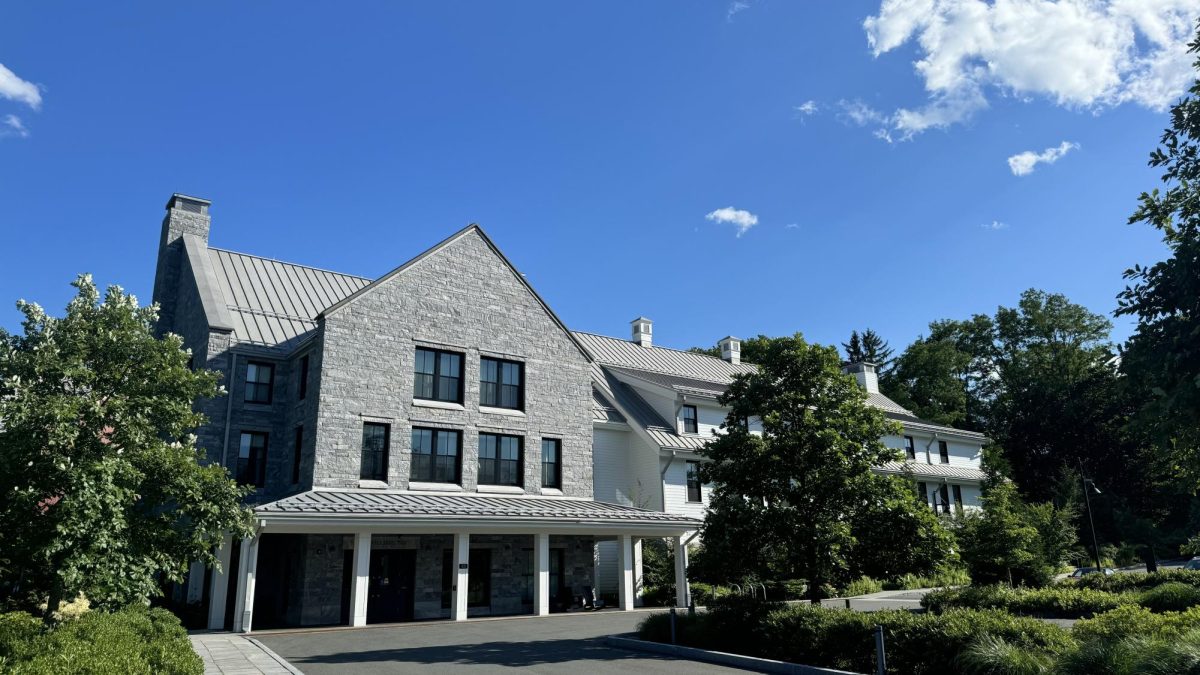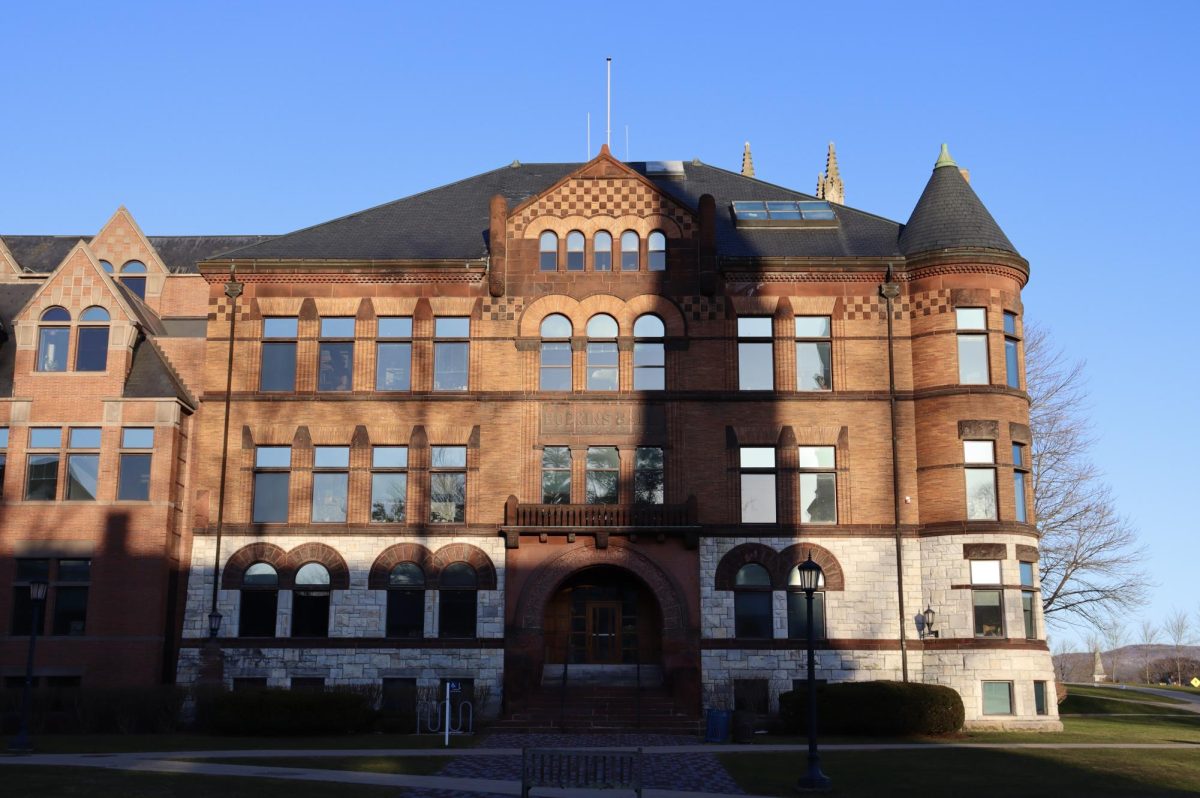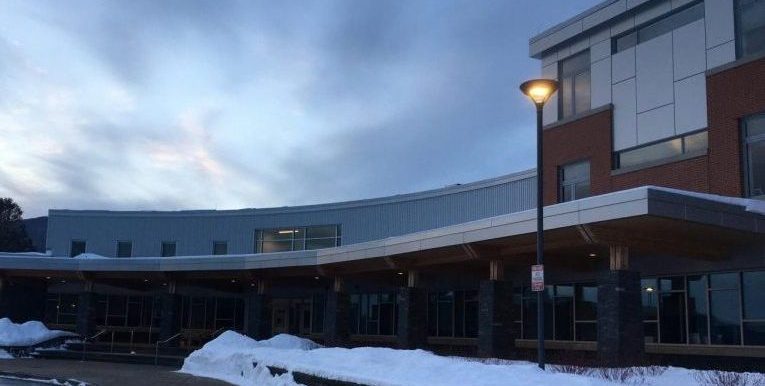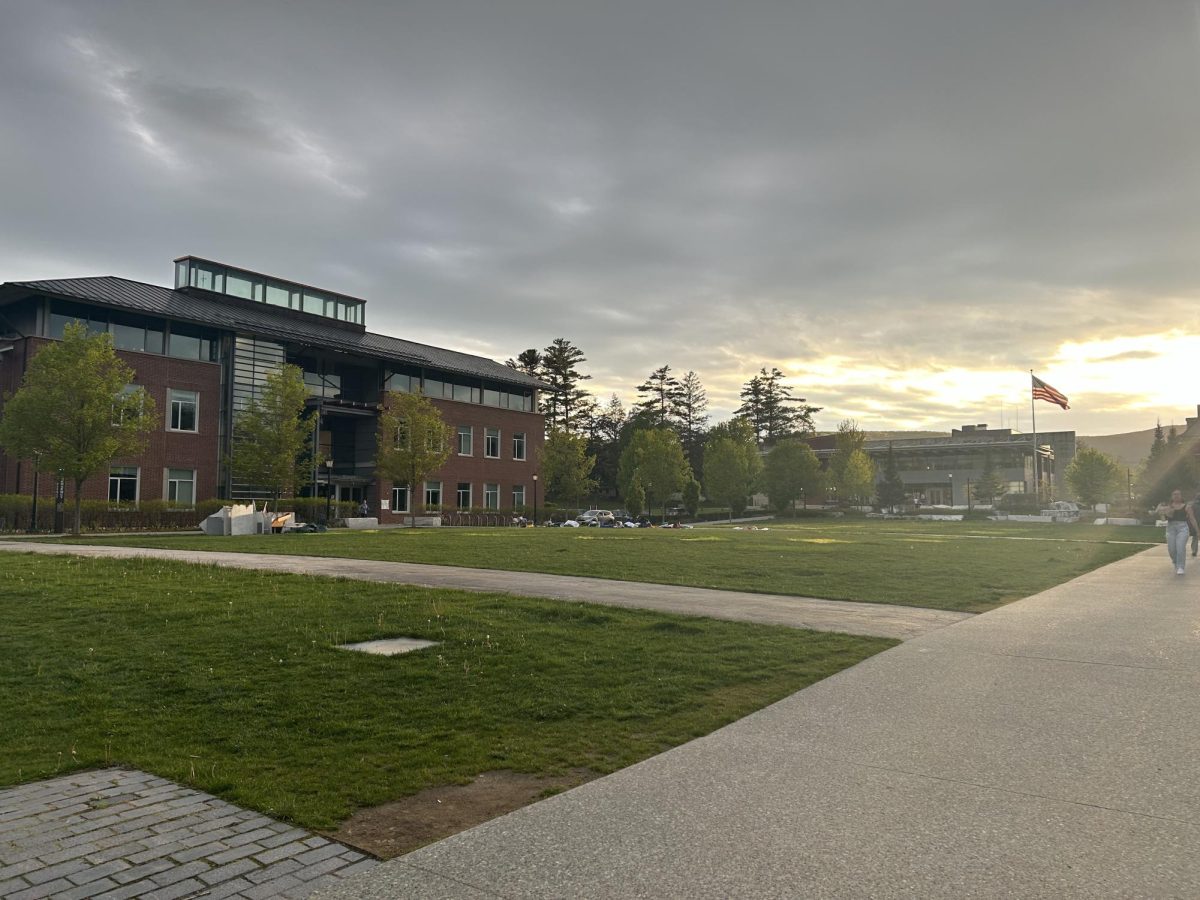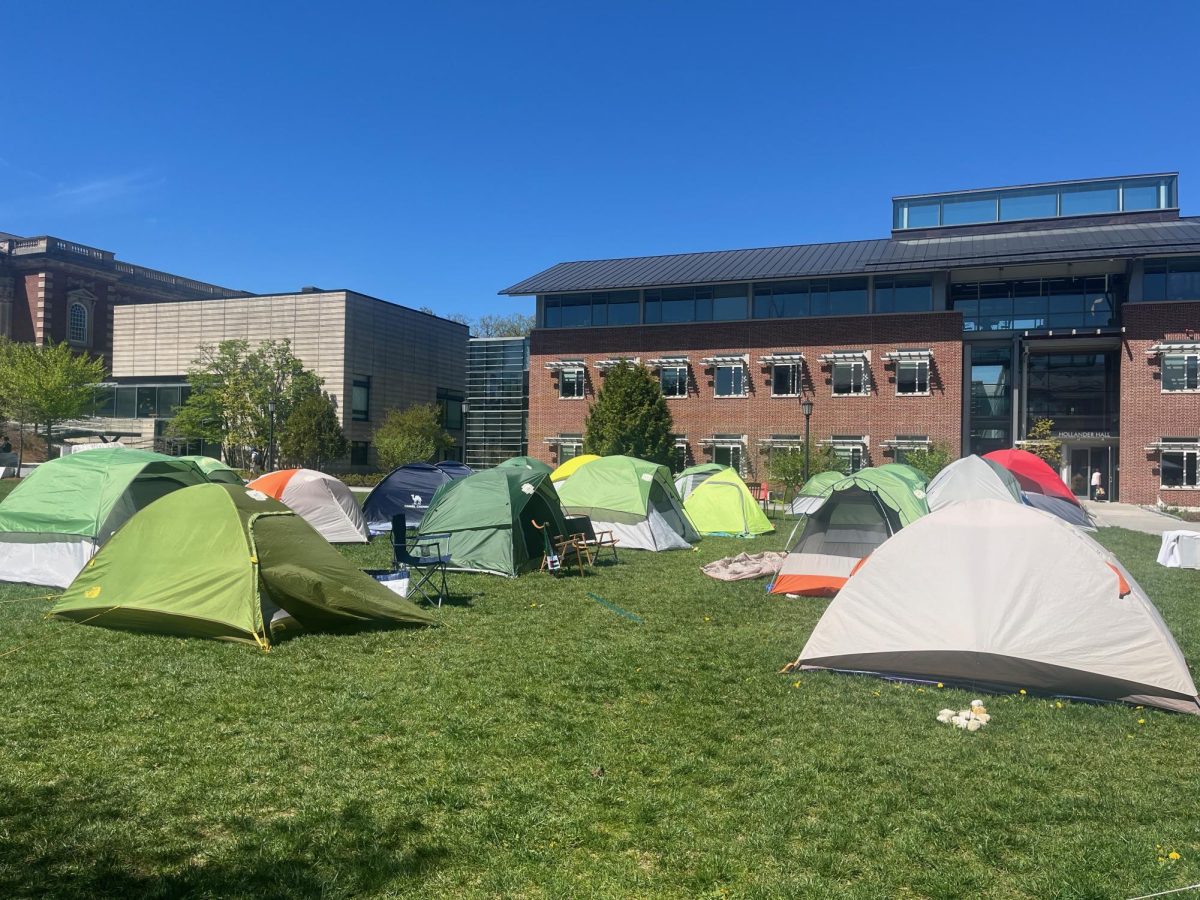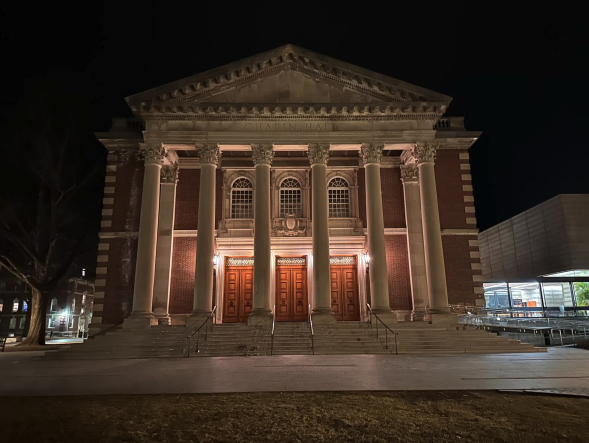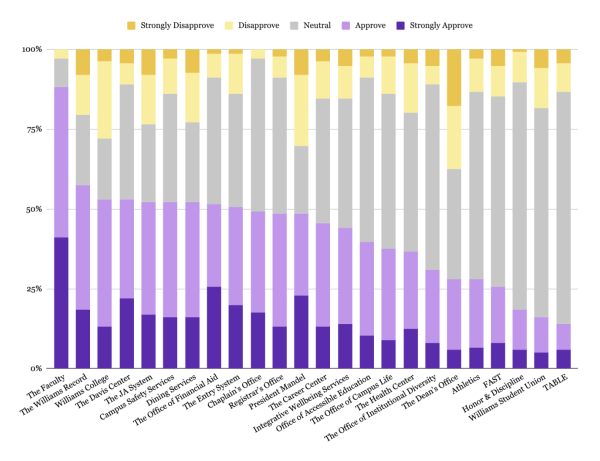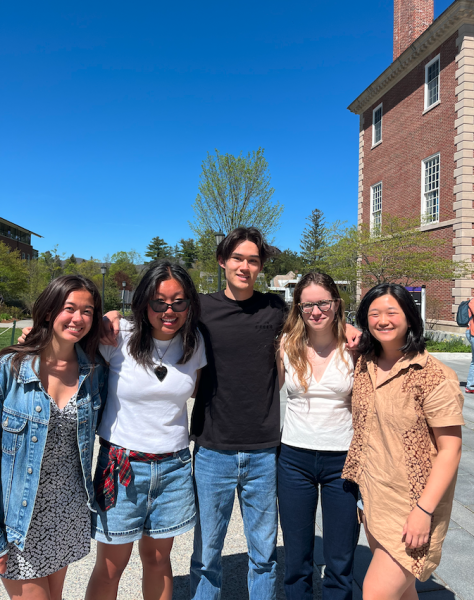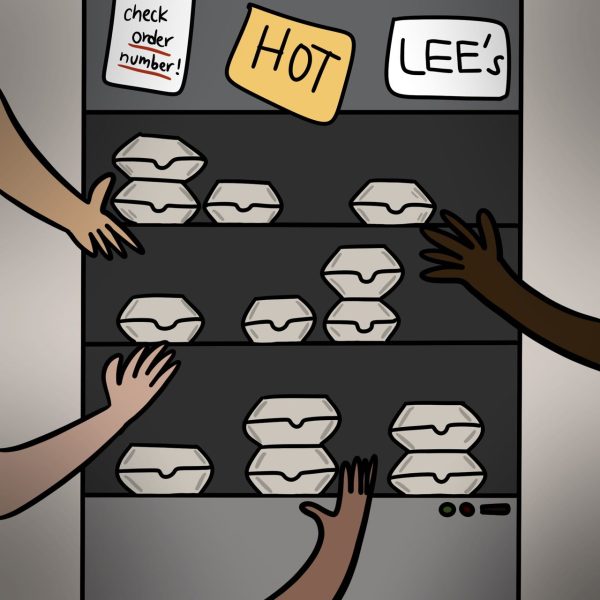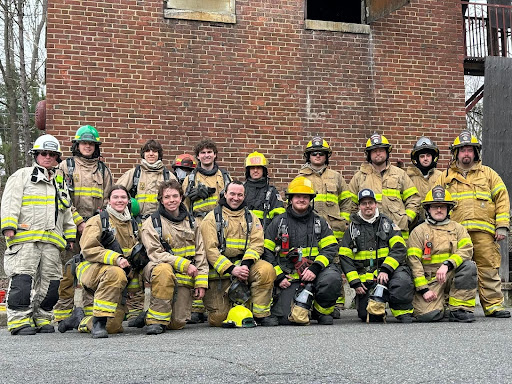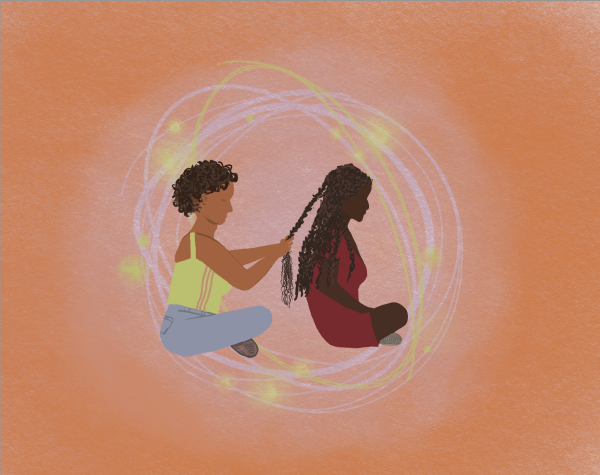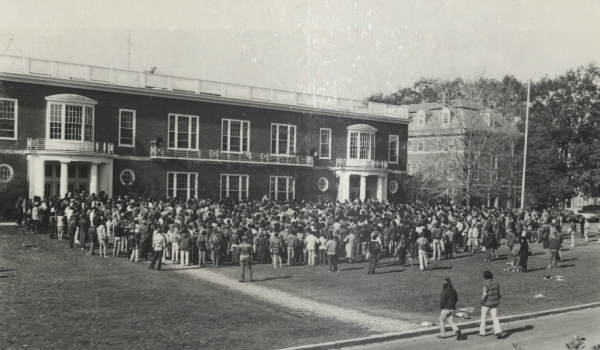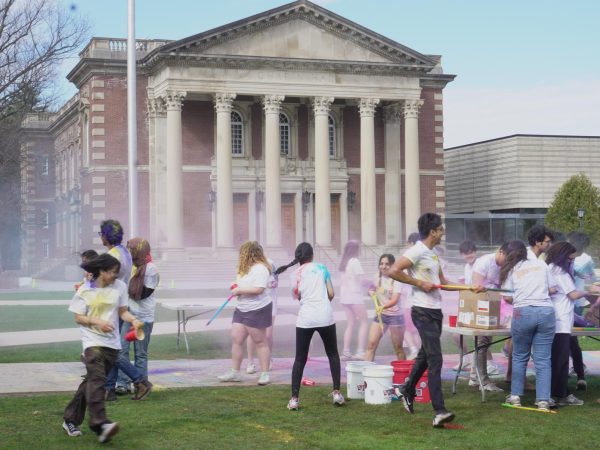A day in the life with President Maud S. Mandel
May 11, 2022
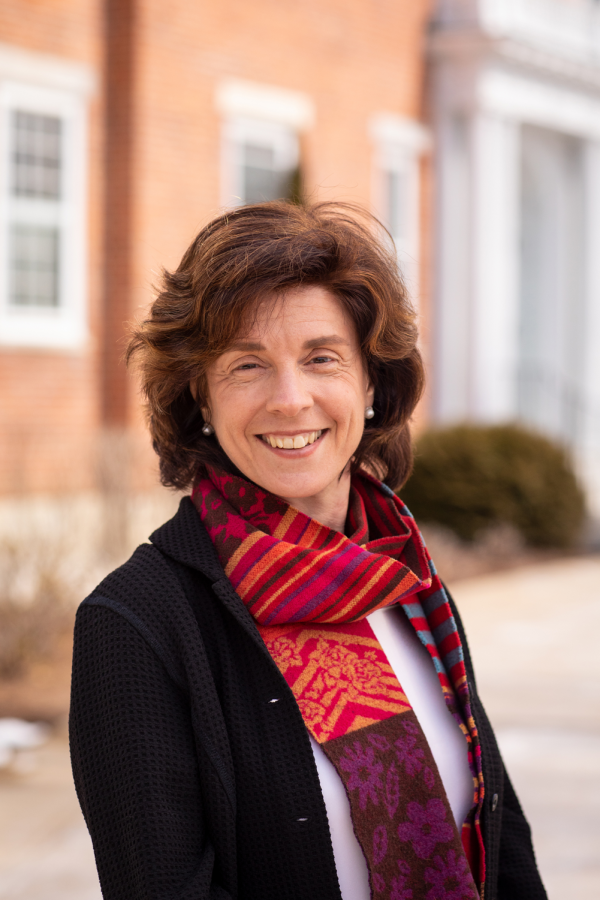
When the College launched the nation’s first all-grant financial aid program and eliminated the work-study requirement and loans last month, it garnered national attention for both the institution and its president, Maud S. Mandel. But what really goes into policymaking and the role of the president? How does Mandel spend her time outside of executive decision-making? To investigate, we shadowed Mandel for a day, joining her for a few of the events on her itinerary. Here’s what we found.
12 p.m.: We were whisked into Mandel’s office on the second floor of Hopkins Hall for an interview about what her leadership entails. Mandel started by talking us through the role of President of the College, explaining that she divides her role into three parts: the management of the institution, strategic planning for the College’s future, and human relational work.
The time she splits into these components of her leadership is not equally distributed, Mandel explained, but her focus changes based on the needs of the day. “During typical academic years, there are always big decisions to make, but there are decisions within a predetermined range of possible answers,” she said. “You’re drawing from a kind of toolbox, where there are some boundaries on what the possibilities are.”
But according to Mandel, a key component of her leadership during the onset of the pandemic was problem-solving, especially as it related to adjusting precedents that COVID-19 interrupted, such as housing students and shifting academic requirements like the pass/fail option. “What became evident to me was that part of my job was to help people remove some of the options from the table to help narrow down the range of choices and to keep us focused,” Mandel said. “The question was, how do you bring expertise and people together to problem-solve in ways they don’t usually do in order to solve a problem that none of us had ever experienced before?”
“Specifically in terms of my role, it is continuing to do everything we can administratively to support students to get back to the full range of activities — learning, experiential, co-curricular — that we had before with one caveat, which is that institutions evolve,” she said. “So [my role] also [entails] helping us understand who we are now and what we need in this moment.”
For Mandel, leading the College is also a matter of drawing on her disciplinary training in history and Jewish studies, which she says helps her balance the needs of the campus community and shape campus culture. “I’m a historian,” she said. “I think about change over time, and try to help people understand the Williams of today so they can feel connected to it.”
An important part of her role in community engagement, Mandel said, is interacting with alums. She noted that the College has a uniquely active alum community, and she devotes attention to bridging the understanding between current students and alums. “I often describe myself as a translator, which is to say, I’m trying to help one group of people in our broad community understand another group in the community,” she said.
The excitement that Mandel expressed when talking about her emphasis on community engagement is evident in her Instagram account (@williamspresident), chronicling her adventures through selfies at home games, snapshots of Mountain Day views, and montages of dance parties. Two spaces in which community members can be sure to find Mandel are her weekly office hours or her more casual dining hall lunches.
“I’ll go to things that I’m invited to,” she said. “I try not to launch myself into people’s private student lives. But if somebody reaches out and I’m here and available, I try to participate.”
Students attend Mandel’s office hours with varying intent, ranging from concerns to curious administrative questions, to simply making conversation. Mandel’s office hours have been a long-standing feature of her leadership, and she has recently opened them to include faculty and staff, as recommended by the College’s Strategic Plan.
“We can talk about everything from administrative life at the College and things on people’s minds to a class someone’s taking,” she said. “I’ve had some great conversations about some of the academic or other activities students are engaged in [during] the office hours. It’s a place people can [come to] bring a concern if they have one but also just have a conversation about their lives here at Williams.”
Next semester, students will also see Mandel in HIST 433: “Colonialism and the Jews,” an upper-level research seminar. She said the course will provide an overview of the thematic pillars of the topic, and then allow students the opportunity to conduct original research. “This brings together my history, background, and disciplinary training with my focus in Jewish studies,” she said.
The research seminar that Mandel is offering in the fall will feature an eponymous edited volume, which she co-authored, as a core text. When asked about her favorite book that she has read during her academic career, she said that she could not pick just one. “I actually almost rebel at the question of picking one single influential text,” she said. “I am the inheritor of a tradition of amazing scholarship in the field of European and European Jewish history, and it’s really that collective totality that has shaped how I think.”
Mandel has also taught a tutorial at the College called “Memoirs, Memory, and the Modern Jewish Experience.” Alongside pedagogy, Mandel underscored that teaching at the College allows her to cultivate relationships with her students. “This institution supports a distinctive culture of faculty leaning into their engagement with students — and vice versa,” she said. “I learn every time I teach a class here.”
As for television, one of Mandel’s current favorite shows is The Great, which follows the reign of Catherine the Great. “It’s phenomenally funny, and wicked,” Mandel said.
But Mandel clarified that the sharp satire appealed to her more than the historical aspect of the show. “I tend to like gripping dramas that you don’t want to turn off,” she said. “I’ve been known to binge a thing or two in my day.”
When asked which musician she would invite to perform for the campus community if she could choose anyone, Mandel was quick with a response.
“I’m thinking of somebody like Stevie Wonder — somebody who could get us to dance,” she said. “I love dancing myself, so something with a beat that would get us moving and shaking.”
4 p.m.: A meeting with the Williams Student Union (WSU) was next on our agenda, which Mandel said she attends regularly to gauge student sentiment. We met in a conference room overlooking the clouds brewing over Sawyer Quad. “I love Sawyer,” she said. “This building really pulls people into it.”
Attending WSU meetings, Mandel explained, is another way that she engages with students. “WSU is the business of monthly conversation about stuff that’s on the minds of students,” she said. “I’m trying to get to the diverse pathways to hear about and learn about what’s going on with students on the campus.”
During these meetings, Mandel documents proposals and questions by the WSU so that she can direct inquiries to the appropriate offices and staff. Since her position involves being engrossed in the daily management of the College, she explained, attending WSU meetings also allows her to illustrate for students how different branches of the bureaucracy actually work.
This process, Mandel explained, works both ways. “What happens on college campuses is often mystifying to people off of college campuses,” she said. “I’ve seen this a lot. I spend some portion of my time just trying to explain why students today might be advocating for a certain thing, or trying … to help [alums] understand how the campus has evolved and why that’s important.”
Many of WSU’s recommendations addressed current student needs and the ongoing process of rekindling pre-COVID traditions. “Let’s not do things just because we did them,” Mandel affirmed. “Let’s do them because we want to and it’s important to do so.”
As the WSU representatives conveyed the concluding points of their agenda, Mandel was eager to continue the conversation, prompting, “Can I ask you guys questions?”
6:30 p.m.: To end the day, Mandel hosted a reception at her home as a “thank you celebration” for student and faculty leaders on the Residential Life Team (RLT).
In the past, Mandel has hosted various student groups and organizations, such as the opening welcome for first generation college students, Phi Beta Kappa electees, the football team after their undefeated season, and students, faculty, and staff who are veterans. “We try to do different things over the course of every year to bring students to the house and engage with them on various [subjects],” she said. Though COVID initially interrupted this tradition, Mandel said she is working to revitalize it.
RLT student leaders and faculty gathered inside the Mandel family’s dining and living rooms and onto the porch, gazing at the mist over the Purple Valley. Faculty and students alike strolled throughout the house, chatting about RLT experiences and student life, all while sipping berry lemonade mocktails and munching scrumptious hors d’oeuvres. Just like us, students were eager to ask Mandel about everything from her upcoming course to the craziest wildlife she’s seen on campus (a bear in front of Griffin Hall being the answer).
“Leadership is always interesting,” she said. “And it’s particularly interesting in a place where the people who you live and work with care about the institution, have really good ideas, and are hardworking — and this place has all three of those things.”
“To be at the head of an institution where that is the reality is a privilege, and I really love being here,” Mandel said.


